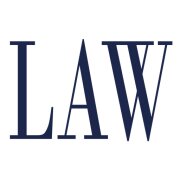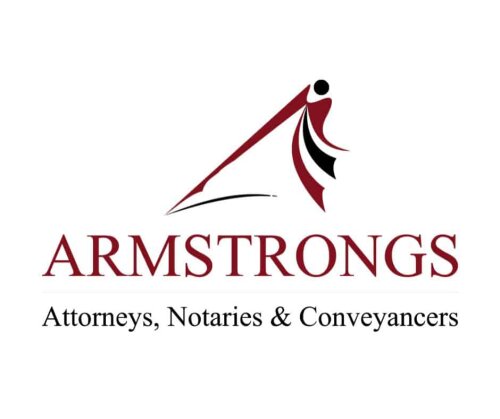Best Water Law Lawyers in Gaborone
Share your needs with us, get contacted by law firms.
Free. Takes 2 min.
List of the best lawyers in Gaborone, Botswana
About Water Law in Gaborone, Botswana
Water Law in Gaborone, Botswana refers to the legal rules and regulations that govern the use, management, allocation, and protection of water resources within the city and its surrounding areas. The legal framework is mainly influenced by national legislation, such as the Water Act and subsidiary laws, as well as policies common to Botswana aimed at addressing water scarcity, equitable distribution, public health, and environmental conservation. In Gaborone, where water supply is essential to daily life, agriculture, and commerce, Water Law plays a crucial role in ensuring fair access and sustainable management for residents, businesses, and government bodies.
Why You May Need a Lawyer
Legal issues related to water can be complex and carry significant consequences. Here are some common situations where you may require the assistance of a lawyer specializing in Water Law:
- Disputes over water use or access, such as those between neighbors, businesses, or communities
- Issues with water rights allocations, including applying for or renewing permits
- Allegations of illegal water use or pollution
- Enforcement of government regulations against individuals or businesses
- Negotiations involving agricultural water supply or commercial usage rights
- Claims arising from water services, such as shortages, poor quality, or interruption by the Water Utilities Corporation
- Land development projects requiring water infrastructure or environmental impact assessments
- Representation in local tribunal or court cases relating to water
Local Laws Overview
Key aspects of Water Law in Gaborone are set by national statutes and local by-laws. The most significant legal instruments include:
- Water Act (Cap 34:01): This is the primary law regulating the abstraction, use, and protection of water resources in Botswana. It establishes the Water Apportionment Board which manages water rights allocations and ensures compliance with water use standards.
- Water Utilities Corporation Act: This law establishes the Water Utilities Corporation (WUC) responsible for providing water supply and wastewater services in Gaborone and other urban areas.
- Environmental Assessment Act: This act mandates environmental assessments for proposed developments that may impact water resources, such as construction projects or large-scale agricultural ventures.
- Public Health Act: This act contains provisions concerning the quality and safety of water provided for public consumption.
- Customary Law: In certain peri-urban and rural areas near Gaborone, customary rules still influence the use of shared water sources, subject to national law.
In addition, Gaborone City Council may enact by-laws addressing specific local concerns such as water conservation, rainwater harvesting, and regulation of borehole drilling in the city.
Frequently Asked Questions
What is required to legally drill a borehole in Gaborone?
You must apply for a permit from the Water Apportionment Board before drilling a borehole. Environmental and public health standards must also be met.
Who is responsible for providing water to households in Gaborone?
The Water Utilities Corporation is the main entity responsible for supplying water to residential, commercial, and industrial customers in Gaborone.
Can I use river or rainwater for my personal needs?
You may use surface water for domestic purposes in limited quantities, but large-scale abstraction or commercial use requires a permit. Rainwater harvesting is generally allowed and sometimes encouraged by city by-laws.
What should I do if my water is contaminated?
Report the issue to the Water Utilities Corporation and the Department of Water Affairs. You may also consult a lawyer if you believe your health or property has been harmed due to negligence.
How are water rights allocated in Gaborone?
Water rights are primarily allocated by the Water Apportionment Board based on availability, usage needs, and environmental considerations.
Do I need legal advice for a water use dispute with my neighbor?
While some minor disputes can be resolved amicably, it is often wise to seek legal advice to understand your rights and avoid escalation.
Can a business be penalized for polluting water sources?
Yes, businesses found to be discharging contaminants into water sources without proper treatment or authorization can face penalties, including fines, closure orders, or even criminal charges.
Are there restrictions on water use during droughts?
Yes, the Water Utilities Corporation and local authorities may impose water use restrictions during droughts, prioritizing essential needs and enforcing penalties for non-compliance.
What laws protect water quality in Gaborone?
Water quality is mainly protected under the Water Act, Public Health Act, and relevant environmental regulations enforced by agencies such as the Department of Water Affairs.
Where do I report illegal abstraction or misuse of water?
You should report illegal water use to the Department of Water Affairs, Water Apportionment Board, or the Water Utilities Corporation. For severe cases, seek legal advice on further action.
Additional Resources
If you need further support or information about Water Law in Gaborone, consider reaching out to the following organizations and government departments:
- Water Utilities Corporation (WUC) - For billing, supply issues, and water quality concerns
- Department of Water Affairs - For permits, rights allocation, and regulation enforcement
- Water Apportionment Board - For water rights applications and disputes
- Gaborone City Council - For local by-laws and public health matters
- Ministry of Land Management, Water and Sanitation Services - For policy guidance and oversight
- Local legal aid centers or private law firms with experience in Water Law
Next Steps
If you are facing a legal issue related to water in Gaborone, start by gathering all relevant documentation, such as permits, correspondence with authorities, and evidence of disputes. Contact the relevant government office for clarification or enforcement if needed. If your case is complicated or unresolved, consult a lawyer specializing in Water Law to assess your situation, advise you on your rights, and represent you in negotiations or legal proceedings. Acting promptly helps protect your interests and ensures compliance with all local and national water regulations.
Lawzana helps you find the best lawyers and law firms in Gaborone through a curated and pre-screened list of qualified legal professionals. Our platform offers rankings and detailed profiles of attorneys and law firms, allowing you to compare based on practice areas, including Water Law, experience, and client feedback.
Each profile includes a description of the firm's areas of practice, client reviews, team members and partners, year of establishment, spoken languages, office locations, contact information, social media presence, and any published articles or resources. Most firms on our platform speak English and are experienced in both local and international legal matters.
Get a quote from top-rated law firms in Gaborone, Botswana — quickly, securely, and without unnecessary hassle.
Disclaimer:
The information provided on this page is for general informational purposes only and does not constitute legal advice. While we strive to ensure the accuracy and relevance of the content, legal information may change over time, and interpretations of the law can vary. You should always consult with a qualified legal professional for advice specific to your situation.
We disclaim all liability for actions taken or not taken based on the content of this page. If you believe any information is incorrect or outdated, please contact us, and we will review and update it where appropriate.













